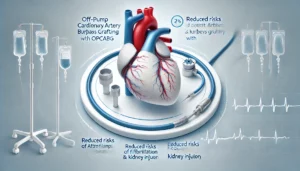
The Past, Present, and Future of Off-Pump Coronary Artery Bypass Grafting
This review traces the evolution and prospects of off-pump coronary artery bypass grafting (OPCAB). Despite early skepticism due to technical difficulty, OPCAB offers major advantages for high-risk patients, including reduced stroke risk and faster recovery. Modern trials and meta-analyses show comparable or superior outcomes to on-pump CABG when performed by experienced surgeons. Emphasis is placed on arterial grafting, no-touch techniques, and hybrid strategies for future optimization.










